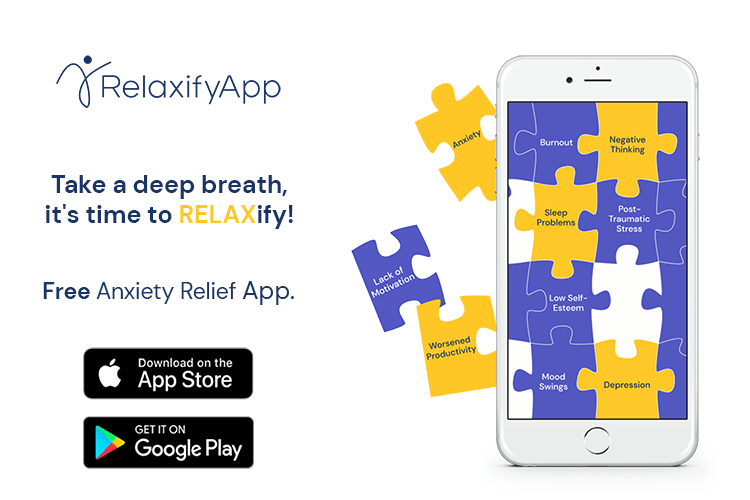Here’s How to Fight With Depression and Regain Your Purpose
A harsh breakup, grief over a lost loved one, disappointment and unmet expectations… We all sometimes feel blue, down, and unhappy for different reasons. We often describe these feelings as being “depressed,” but depression is not always the case.
If you’ve experienced what major depressive disorder feels like, you can already understand the difference. It changes not merely the way you feel but also the way you think, the way you act, and the way you function on an entirely physical level.
Although harsh and complex to manage, depression is still treatable if you recognize and address the problem. So below, you’ll see our brief guide on how to fight with depression and regain your feeling of purpose and self-worth.
What is Depression – Facts and Stats
As we already mentioned above, depression is very different from the natural feelings of sadness or gloom we all might occasionally experience. In fact, clinical depression is classified as a serious medical illness, taking up to 850,000 lives every year when not addressed adequately.
Put in a nutshell – depression is a mood disorder that manifests itself in persistent sadness, loss of purpose, worsened self-image, and loss of interest in things that once made the person joyful and excited. It can also evolve to include physical symptoms such as worsened sleep patterns, changes in appetite, lack of energy, and difficult concentration.
The latest data shows that one in six people will have depressive episodes during their lifetime. Every year, one in five adults is affected by depression, and a mind-blowing 50% of them are also diagnosed with anxiety.
The highest depression disorder rates are measured in individuals between 18 and 25 years old, where women are more prone to get depressed than men.
Where Does Depression Affect the Brain?
The growing awareness and classification of depression as a severe medical condition triggers extensive research. Recently, science has turned its eyes toward how depression actually affects the brain physically. So, here are the findings published so far:
- It’s been observed that people with depression experience shrinkage in several parts of the brain, thus losing gray matter volume. The most affected areas were the hippocampus, the thalamus, the Caudate nucleus, and the prefrontal cortex.
- From a structural point of view, abnormalities have been discovered in all three parts of the brain – the prefrontal neocortex, the limbic brain, and the reptilian complex.
- Along with regional brain abnormalities, circuit-level connectivity models have also been proven to get worse in depression sufferers.
The pathophysiology of depression is far from well-explored, leaving medical scientists with food for extensive future research and investigation.

How Do People Fight with Depression?
You can suspect depression if you live through more than two weeks of overpowering sadness, loss of interest, and deviations in how you perceive yourself. However, symptoms such as impaired sleep, appetite changes, and cognitive tribulation can also be attributed to different endocrine and neurological problems. So you’d probably want to cross these out as a first step after suspecting depression.
Generally, your strategy for diagnosing and battling depression should include the following essential steps:
- Thoroughly checking your physical health and making sure your symptoms are not driven by any medical conditions or nutritional deficiencies;
- Sharing your concerns with family, close relatives, or friends in order to get timely support in your efforts to recover;
- Trying to fight depression at your own pace by challenging negative thoughts, practicing mindfulness, and trying to engage in pleasurable activities;
- Further supporting your efforts with different professionally designed apps, games, and mental fitness exercises on a daily basis;
- Reaching out to a mental health professional to get a personalized assessment and continuous guidance in your journey back towards yourself.
Battling depression cannot be an easily generalized process, as the experience can be very different for every individual. Whatever the case, though, you are highly recommended to dig deeper and find the root trigger for depression occurring in the first place. Potential reasons could be past trauma, persistent stress, alcohol or substance abuse, or family history. Either way, overcoming the causes with the help of a therapist is just as necessary as managing the symptoms themselves.
How Can I Clear My Depression?
If you need some ideas on how to challenge depression and begin feeling yourself again, here they come:
- Educate yourself about depression. Knowing the fundamentals of the condition will help you build your strategy for overcoming it successfully. Moreover – it will help you comprehend the changes you’re experiencing and regain confidence that recovery is totally achievable.
- Set small daily goals. Loss of motivation might get in the way of your everyday life, so start with small things and gradually challenge yourself each day. Sometimes, even taking out the trash can be a win.
- Try to exercise. It can definitely be challenging to bring yourself to exercise when you are barely able to leave the bed. Anyway, remember that movement immediately releases happiness hormones and literally helps your brain rewire.
- Keep an eye on your diet. As we already mentioned, depression can trigger emotional eating and drastic changes in appetite. If you’re experiencing this, you can try to replace fast and junk food with fruits, nuts, or probiotic foods as often as you can.
- Spend time in nature. You’ve surely felt the incredible effect nature produces on your mood at least once in your lifetime. So right now, you need that boost more than ever before. Science has confirmed the impact of green and blue environments on emotional well-being, so pack up and hit the woods!
- Keep a journal. Channeling your subjective perceptions and abstract thoughts into words will give you a different perspective right away. In the long term, your journal will help you recognize patterns, spot triggers, and understand your own self better.
- Answer that call. Depression often goes hand in hand with isolation and intentional exclusion from your social circle. You don’t need to attend parties and force yourself to smile. It’s just enough to invite your best friend over for a quiet movie night and binge-watch your comfort show together.
- Find your way forward. We often dream of finding a way back to normal. But what if the only way is forward? As counterintuitive as it may sound, depression can push you toward reexploring yourself. It’s your journey to walk, so there is no fixed direction. You can make it spiritual, express yourself through art, or finally take up that absurd hobby you’ve always been postponing for later in life.
Last but not least – keep yourself away from alcohol and recreational drug use during your depression recovery. The momentary improvement is often followed by a massive drop in emotional health, and the long-term effects will never be in your favor.

Beat Depression: Quotes to Lift You Up
To round out your recovery inspiration, we’ve picked some powerful quotes on depression that will help you rethink your position and step out of the deadlock.
“It’s not all bad. Heightened self-consciousness, apartness, an inability to join in, physical shame and self-loathing—they are not all bad. Those devils have been my angels. Without them I would never have disappeared into language, literature, the mind, laughter and all the mad intensities that made and unmade me.”
― Stephen Fry
“Listen to the people who love you. Believe that they are worth living for even when you don’t believe it. Seek out the memories depression takes away and project them into the future. Be brave; be strong; take your pills. Exercise because it’s good for you even if every step weighs a thousand pounds. Eat when food itself disgusts you. Reason with yourself when you have lost your reason.”
― Andrew Solomon
“Take a shower, wash off the day. Drink a glass of water. Make the room dark. Lie down and close your eyes. Notice the silence. Notice your heart. Still beating. Still fighting. You made it, after all. You made it, another day. And you can make it one more. You’re doing just fine.”
― Charlotte Eriksson
“Perhaps depression is caused by asking oneself too many unanswerable questions.”
― Miriam Toews
“Depression is your body saying, ‘I don’t want to be this character anymore. I don’t want to hold up this avatar that you’ve created in the world. It’s too much for me. You should think of the word ‘depressed’ as ‘deep rest.’ Your body needs to be depressed. It needs deep rest from the character that you’ve been trying to play.”
— Jim Carrey
“Sometimes, life will kick you around, but sooner or later, you realize you’re not just a survivor. You’re a warrior, and you’re stronger than anything life throws your way.”
— Brooke Davis
“Ring the bells that still can ring. Forget your perfect offering. There is a crack, a crack in everything. That’s how the light gets in.”
— Leonard Cohen
“I wonder if that’s how darkness wins, by convincing us to trap it inside ourselves, instead of emptying it out. I don’t want it to win.”
― Jasmine Warga
“Though I am often in the depths of misery, there is still calmness, pure harmony and music inside me. I see paintings or drawings in the poorest cottages, in the dirtiest corners. And my mind is driven towards these things with an irresistible momentum.”
― Vincent van Gogh
“In the middle of winter I at last discovered that there was in me an invincible summer.”
— Albert Camus
“If you desire healing,
let yourself fall ill
let yourself fall ill.”
― Rumi







